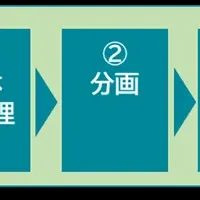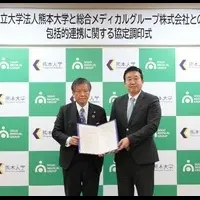
Global Alliance Formed to Combat Mosquito-Borne Diseases with Innovative Technology
Innovating for Global Health: A New Alliance Against Mosquito-Borne Diseases
In an unprecedented collaboration, the World Mosquito Program (WMP), affiliated with Monash University, has joined forces with Debug, a subsidiary of Alphabet, to tackle mosquito-borne diseases on a global scale. The announcement made on March 5, 2025, aims to leverage advancements in technology to fight viruses such as dengue, Zika, chikungunya, and yellow fever through automated releases of genetically modified Wolbachia Aedes aegypti mosquitoes.
The Proven Method: Wolbachia Replacement
The WMP has pioneered the Wolbachia replacement method, which has become a cornerstone in the fight against disease transmission through mosquitoes. This method has already shown impressive results, with a study published in the New England Journal of Medicine citing a remarkable 77% decrease in dengue cases in regions like Yogyakarta, Indonesia, where these mosquitoes were deployed. Additional successes have been noted in locations such as the Aburrá Valley in Colombia and Niterói in Brazil, both of which reported their lowest dengue incidence rates in over two decades following the implementation of WMP's strategies.
Enhancing Efficiency with Debug's Technologies
Debug enters this collaboration equipped with a range of cutting-edge technologies, including end-to-end systems designed for automated mosquito rearing and release. One of the standout features of Debug's approach is its AI-powered visual sex sorting system, which improves the efficiency of mosquito deployment. This allows for large-scale operations that cover more ground with precision, ultimately increasing the impact of operations to suppress vector-borne diseases.
Linus Upson, founder of Debug, expressed excitement at the partnership, emphasizing the potential of integrating Debug’s robotic and AI solutions with WMP’s existing methodologies. He stated, "This is an exciting moment to unify groundbreaking biological and technological achievements to make a global impact."
A Synergistic Approach to Global Health Challenges
The alliance between WMP and Debug signifies a significant step forward in the battle against mosquito-borne diseases. By integrating different technological strengths, both organizations aim to enhance the scalability and effectiveness of their respective methods. Scott O'Neill, CEO of WMP, highlighted the transformative potential of Debug's technology in accelerating the deployment of Wolbachia releases, thereby striving to protect more vulnerable populations worldwide.
Kieran Walters, WMP's Executive Director of Strategy and Partnerships, echoed this sentiment, stating, "We are thrilled to form an alliance with Debug to combat one of the biggest global health threats of the 21st century. By combining our technologies, we can deliver an integrated solution to protect vulnerable communities from mosquito-borne diseases on an unprecedented scale."
Innovative Solutions for a Broader Impact
This collaboration not only aims to expand the reach of existing Wolbachia programs but also fosters innovation that could lead to new solutions tailored to local needs across diverse environments. The combined efforts of WMP and Debug could dramatically shift the narrative around mosquito-borne illnesses, which have long posed a significant threat to public health in many regions.
As the two organizations embark on this partnership, the anticipation builds around the potential outcomes of their efforts. With the global burden of mosquito-borne diseases continuing to rise, every innovative step towards effective prevention represents hope for millions at risk.
Conclusion
The technological alliance between the World Mosquito Program and Debug marks a significant advancement in public health initiatives aimed at controlling mosquito populations that spread harmful diseases. This collaboration not only represents a merging of expertise but also a commitment to safeguarding future generations from the devastating impacts of these diseases. As we look ahead, the world watches closely, hopeful for the advancements this partnership will bring in the fight against mosquito-borne diseases.
Topics Health)










【About Using Articles】
You can freely use the title and article content by linking to the page where the article is posted.
※ Images cannot be used.
【About Links】
Links are free to use.